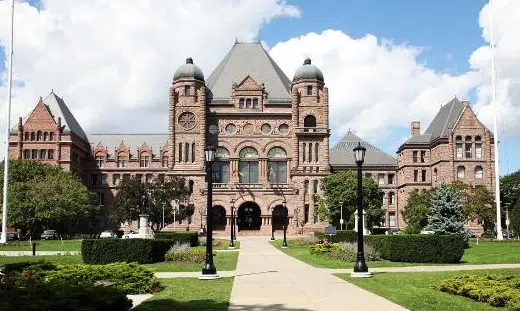The province is projecting the deficit for 2021-2022 will be at $33.1 billion.
Minister of Finance Peter Bethenfalvy rolled out the 2021 budget, which will include more than $100 billion in new debt and deficits that are not likely to end before 2029.
The deficit is projected to hit $27.7 billion in 2022-2023 and $20.2 billion in 2023-2024.
When it comes to spending this year, the document indicates that $186.1 billion will go out the door, which is a decrease from $190 billion last year. The spending will mean the net debt is expected to hit $440 billion this year.
The Ministry of Finance noted the contingency funds for dealing with the pandemic are now fully allocated for 2020 and 2021, but there will still be approximately $2.8 billion available for COVID-19 related issues in 2022.
For Thunder Bay-Rainy River MPP Judith Monteith-Farrell, the budget does not go far enough for northern Ontario.
The NDP representative would have liked to have seen targeted pandemic help.
“In light of what we’re going through I wanted to see a bit more commitment to the vaccine program in northern Ontario and a commitment to (the Thunder Bay Regional Health Sciences Centre) seeing it is a regional hub,” said the NDP MPP.
Thunder Bay-Superior North Liberal MPP Michael Gravelle is also turning a thumbs down to the budget.
“There was very little reference to northern Ontario that disappointed me as well,” noted Gravelle.
Charla Robison is with the Northwestern Ontario Associated Chambers of Commerce and she saw a lot of positives though that includes the grants to small businesses for pandemic expenses in the short and long term.
She points to the “New funding that will help Thunder Bay small businesses right now as they’re trying to endure these really challenging times but also longer-term assistant for tourism and job training to get people back to work.”
Key Highlights
- $2.1 billion for hospitals
- $2.3 billion for contact tracing and PCR testing for COVID-19, which now costs taxpayers $46 per test
- $1 billion to help public health units administer COVID-19 vaccines
- Businesses who can prove revenue was impacted by lockdowns can apply for a second round of cash grants ranging from $10,000 to $20,000, with the new round costing taxpayers $1.7 billion
- Parents with children will receive $400 per school-age child and $500 per child with special needs (total cost to taxpayers of $980 million)
- $650 million to maintain and expand staffing levels in the long-term care sector
- $400 million for the tourism sector over the next four years
- $50 million to faith-based and cultural organizations that have been impacted by the pandemic
What Changes
- $800 million for education, with a increase in spending below the expected rate of inflation for the next three years
- $70 million in lost funding for the Ministry of Labour
- $20 million in cuts to the provinces forest fire fighting program
- $400 million reduced in the Ministry of Government and Consumer Services



